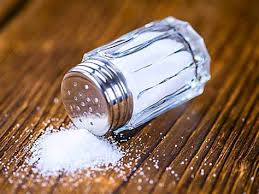
Understanding the Complex Relationship Between Diet, Sodium, and High Blood Pressure
Susan CwikShare
High blood pressure, also known as hypertension, is a prevalent health concern affecting millions of people worldwide. While there are various factors that contribute to hypertension, including genetics and lifestyle choices, the role of diet and sodium intake has been a topic of debate and discussion. In this blog post, we will delve into the complexities of this relationship, explore the impact of other dietary factors, and shed light on effective strategies for managing blood pressure through diet and lifestyle modifications.
The Sodium Controversy: Contrary to popular belief, sodium intake is not the culprit responsible for high blood pressure. While excessive sodium consumption can cause water retention and elevate blood pressure in certain individuals, there are several other factors at play. Recent studies have highlighted the importance of considering the overall dietary pattern, rather than focusing solely on sodium. Processed foods high in sugar, for instance, have been shown to have a greater impact on blood pressure than salt alone.
The Power of a Balanced Diet: One of the key takeaways from the research on hypertension management is the significance of adopting a balanced and wholesome diet. Emphasizing fruits, vegetables, lean proteins, and healthy fats can promote overall cardiovascular health. Such an approach provides essential nutrients, including potassium, magnesium, and fiber, which contribute to blood pressure regulation. A diet rich in these components helps maintain the delicate balance necessary for optimal blood pressure levels.
The Role of Insulin: Insulin, a hormone involved in regulating blood sugar levels, also plays a role in blood pressure regulation. When insulin levels are chronically high due to insulin resistance, it can lead to sodium retention, inflammation, oxidative stress, and blood vessel constriction. This highlights the importance of managing blood sugar levels and insulin sensitivity through dietary choices. Reducing refined sugars, adopting a low-carbohydrate diet, and incorporating regular exercise, including weight training, can improve insulin sensitivity and have a positive impact on blood pressure.
The Nitric Oxide Connection: Another fascinating aspect of blood pressure regulation is the role of nitric oxide, a vasodilator that helps relax blood vessels. When levels of nitric oxide are reduced, blood vessels constrict, leading to increased blood pressure. Interestingly, fructose, a type of sugar found in high quantities in processed foods and sugary beverages, inhibits the production of nitric oxide, contributing to higher blood pressure. Thus, reducing fructose intake is essential for maintaining healthy blood pressure levels.
Moving Beyond Sodium: While reducing sodium intake remains important, it is crucial to understand that the impact of dietary choices on blood pressure extends far beyond sodium alone. By focusing on a holistic approach to nutrition, one can improve overall cardiovascular health and manage hypertension effectively. Avoiding highly processed foods, consuming a wide variety of nutrient-rich whole foods, and paying attention to factors like insulin sensitivity and nitric oxide production can have a profound impact on blood pressure management.
Conclusion: High blood pressure is a complex condition influenced by various factors, and the role of diet and sodium intake is just one piece of the puzzle. While excessive sodium intake can contribute to hypertension, it is equally vital to consider other dietary factors, such as sugar consumption, insulin sensitivity, and nitric oxide production. By adopting a balanced and wholesome diet, engaging in regular physical activity, and seeking professional guidance, individuals can take proactive steps towards managing their blood pressure and improving overall cardiovascular health.
Remember, it is always advisable to consult with healthcare professionals or registered dietitians to receive personalized advice based on the latest scientific evidence and individual health needs.
